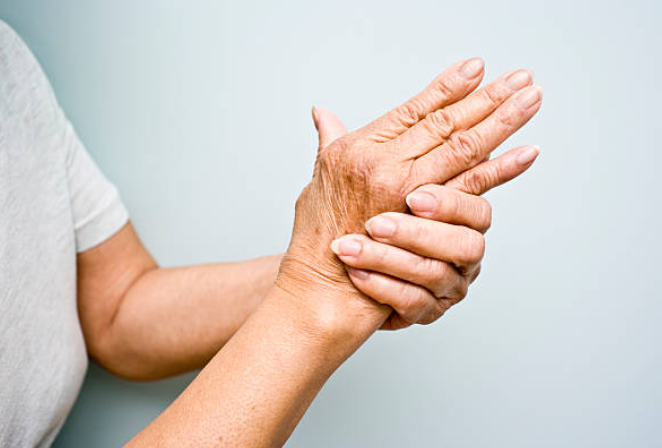What is rheumatoid arthritis?
Rheumatoid arthritis is a chronic autoimmune disorder where your immune cells attack the joints. The exact cause of this chronic condition is still not yet fully understood by health care professionals. Rheumatoid arthritis is characterised by systemic inflammation in the body hence it can affect multiple joints. This condition usually affects the smaller joints (e.g. fingers) of the body then progressively moves onto the larger joints (e.g. hip and knees).
What’s the difference between rheumatoid arthritis and osteoarthritis?
Rheumatoid arthritis is a type of arthritis that is characterised as an auto immune dysfunction that results in widespread inflammation. Osteoarthritis is a degenerative joint condition caused by breakdown of the cartilage between the joints. The inflammation of osteoarthritis is usually caused by excessive overload to the joints. Since rheumatoid arthritis is a systemic inflammation, this condition will tend to affect the joints on both side of the body. People with osteoarthritis tend to only report pain and move restrictions on one side of the body.
How is rheumatoid arthritis diagnosed?
Rheumatoid arthritis is common diagnosed using both a physical examination and a blood test. A physical examination will involve asking about signs and symptoms and your family medical history. There is a large genetic factor associated with this condition. The consultation will also involve examining your joints for tenderness, swelling and warmth. A blood test will reveal specific biological markers that are associated with rheumatoid arthritis. After both physical examination and a blood test then a doctor will determine if you have rheumatoid arthritis.
Common sign and symptoms involve:
- Joint stiffness especially in the morning
- Swollen joints
- Painful joint movements
- Pain on both the left joint and the right joint
- Small joints are enlarged due to inflammation
How can physiotherapy help with rheumatoid arthritis?
Early treatment of rheumatoid arthritis can significantly slow joint damage hence it is imperative to see a rheumatologist if you have been diagnosed with this condition. There is currently no cure for this chronic condition. However, a physiotherapist and rheumatologist can help manage the symptoms associated with rheumatoid arthritis. A rheumatologist can prescribe specific medications to help moderate the immune system. A physiotherapist can prescribe a rehabilitation program to help improve range of motion and reduce pain. Research have shown that physiotherapy is effective at improving physical function of people with rheumatoid arthritis.
People with rheumatoid arthritis can experience episodes of flare ups and remission. At Myphysio, we understand that rheumatoid arthritis is a long-term condition. For this reason, our physiotherapists aim to empower you with self-management strategies so you can manage this condition yourself. Many people with rheumatoid arthritis can live an active lifestyle and enjoy everyday activities with the help of medication and physiotherapy. Contact us today to book an appointment with one of our friendly physiotherapists.
References:
Sul, B., Lee, K. B., Joo, Y. B., Hong, B. Y., Kim, J.-S., Kim, K.-J., Lim, S. H. (2020). Twelve Weeks of Strengthening Exercise for Patients with Rheumatoid Arthritis: A Prospective Intervention Study. Journal of Clinical Medicine, 9(9). doi:10.3390/jcm9092792

